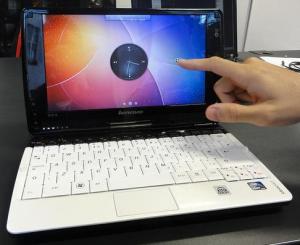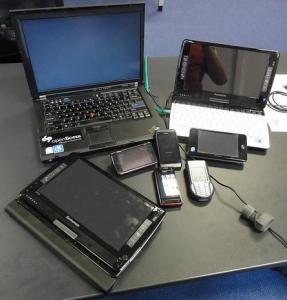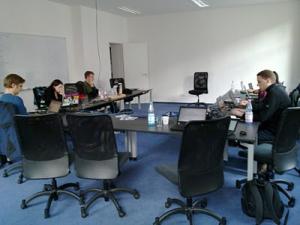KDE's Mobile Team Meets for First Sprint

Plasma Tablet
Making Packages
Creating packages using OBS made it easy to deploy KDE software to tablets that were distributed during the MeeGo Conference. Soon we started to see our KDE applications running on MeeGo. The results were recorded, and videos posted: Kontact Touch, Plasma Mobile, Plasma Tablet and KDE Games.

KDE software can target many devices
Using Qt Quick
The other days consisted of coding and discussions about different subjects, all regarding KDE software on mobile devices. One of the topics was the use of QtQuick and its declarative language, QML, in KDE projects. There was agreement that QtQuick will make mobile application development easier, and that most of the applications would use this new framework when they come to the mobile world.
After these discussions, two things were clear to the team: first, we will need to provide some KDE conveniences to all applications that want to use QML, and second, we want to provide QML components to ease the development of these applications.
Keeping KDE Platform Benefits
Technically speaking, the first conclusion means providing conveniences like KConfig and KIcon as well as bringing more localization and internationalization to QML through our KLocale and internationalization functions. Some of this work has already been tried for Plasma's integration with QML; we decided that this would be a great topic for an upcoming KDE Platform Sprint.

Getting down to work
Parallel to these discussions, work has been started on KDE Games towards a framework that chooses at runtime the kind of widgets it should use: QtWidgets, Plasma widgets or QML elements.
A list of future tasks was created in order to help in future technical aspects of the project. This list can be found in the community wiki and shows that KDE software on mobile devices can go far. However, to reach its full potential, it will need help of the entire community.
The sprint attendees thank KDAB and KDE e.V. for supporting the event. You can help support future events like this by Joining the Game.